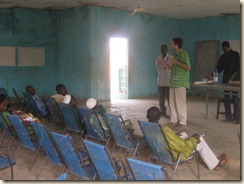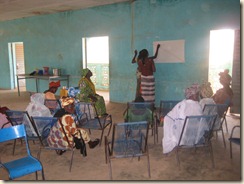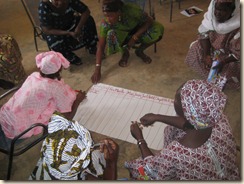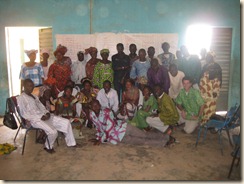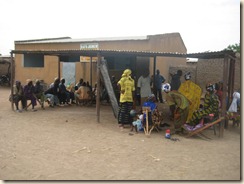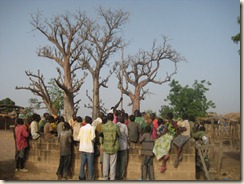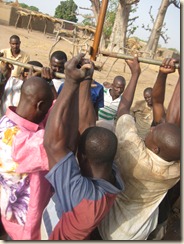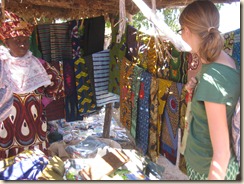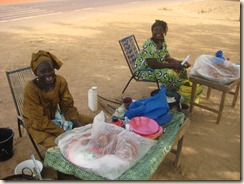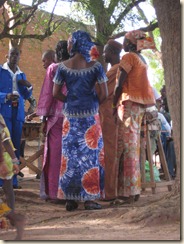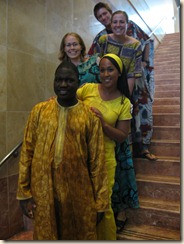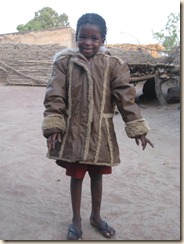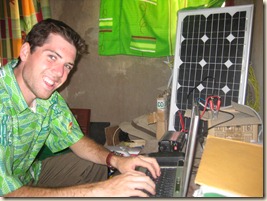
One of my goals in coming to Mali was to develop a more “real” understanding of food insecurity, a subject that I have studied extensively in the classroom both in my undergraduate and graduate programs. Certainly it is one thing to know that the three pillars of food security are availability, accessibility, and utilization, and quite another to wonder where you’ll find your weekly supply of vegetables or why Malians think that a full belly is a nourished one. Building on this improved understanding of food insecurity is a strong desire to do something about it, and so much of my time in Mali thus far has been focused on promoting food security. However, for whatever reason, I have not mentioned much of this work on the blog, so without further ado…
Masters Thesis – Though it’s been a while since I mentioned it, some may recall that I am a Masters International PCV. This program enables people to start their graduate degree for one year in the States and then complete their program in the Peace Corps by writing their thesis (or equivalent) while serving. As a current Masters student in agricultural economics from Michigan State University, I have had the opportunity to tap into research already being done by my professors in Mali. Currently, one project is looking at the relationship between cotton and cereal production, an important topic in a country whose second top export is cotton. To build off of its quantitative findings, I will conducting a similar survey in my own village (Kongodugu) and following it up with focus group discussions with farmers in Bambara. This work will hopefully help to inform Malian policymakers with how to best address current problems with food insecurity and instability in the cotton industry.
Food Security Task Force – Peace Corps itself also has a Food Security program, which is supported by a training budget and a small staff. To help improve the program, a volunteer-led task force has been established to meet periodically and provide feedback. In December, the task force held its leadership election, and I was fortunate enough to snag the top spot, a position lovingly labeled “Food Security Czar.” Since then I have met twice with the task force and, after much deliberation, we have pushed forward various previous to Peace Corps staff including how to equip volunteers with practical resources to help them train their villages on food security related activities.
FS-CAT – Moreover, I just recently completed the Food Security Community Assessment Tool, which will be given to the newest round of PCVs. The tool will help volunteers assess available resources in their village and help them determine which particular aspects of food security are their village’s strengths or weaknesses. The FS-CAT will also help link volunteers to some of the practical resources the task force is pushing forward. I will be presenting the FS-CAT to the PCVs next week in Bamako, so hopefully it goes over well.
Village Work – Lastly, in all the work that we do in our village, we keep food security in mind. This is not difficult since, as we learned from our PACA meetings, Malian’s daily and seasonal calendars are based around farming and eating food. Thus, a huge variety of projects and activities can be food security focused. Topics like gardening and composting can improve food production while others, such as nutritional foods and hand-washing with soap, can improve food consumption. We have also talked about it specifically on our radio show.
So even though none of this work sounds particularly exciting, it occupies too much of my time to simply not be mentioned in this blog. Hopefully, I will try to be more vigilant about updating y’all on continuing this food security work in the future. :) Thanks for reading.
-James
